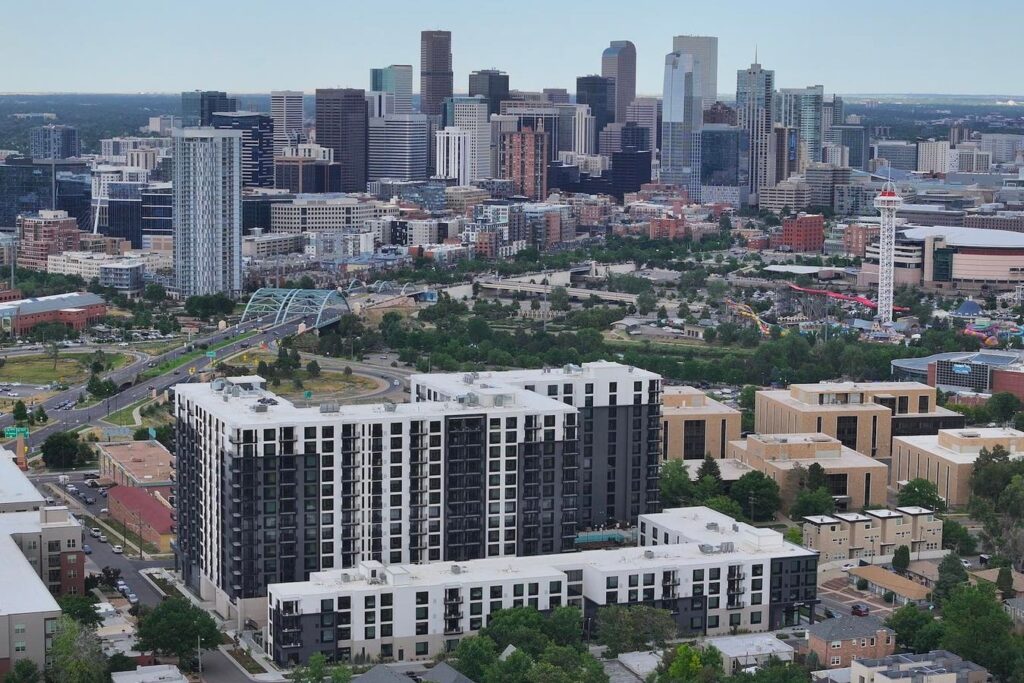This past July, a hot-off-the-presses report delivered fresh evidence of Denver’s acute housing shortage. Entitled “Regional Housing Needs Assessment,” the report prepared for Denver Regional Council of Governments by ECOnorthwest revealed the region must build 511,000 units in the next 25 years to meet current and future housing needs.
It’s not hard to understand why. The Denver region has witnessed swift population growth this century, tallying a 17 percent increase in residents just since 2010. Periodic building booms have not produced enough housing to stay apace of population and job growth. Home prices and rents have ballooned, rising much more than incomes. The result: Many of the 3.4 million residents calling the region home grapple with the problem of landing affordable and accessible housing in their locations of choice.
The assessment reported a regional housing strategy is crucial to align housing development with broader regional goals for transportation and economic development.
Innovative solutions
In the meantime, a number of organizations are starting to work on addressing the dire need for workforce housing in the Denver region.
The goal: To ensure those who make up the metro’s workforce backbone continue to be able to afford roofs over their heads.
In June, for instance, a new multifamily community called Skyline at Highlands received its grand opening in northwest Denver. Developed by Grand Peaks and Access Industries, the 533-unit market-rate community at 2501 W. 26th Ave. represents the largest multifamily community constructed in Colorado since 2002.
Skyline at Highlands will be part of a collaboration involving Grand Peaks and the Denver Public Schools (DPS) Foundation. The partners will donate 10 Skyline at Highlands apartments to DPS teachers, with Grand Peaks delivering one-year, rent-free leases for all 10 teachers residing in those units. Educators chosen for the program will be selected by DPS Foundation by means of a drawing.
The initiative is certain to be welcomed by teachers, given the findings of a recent National Council on Teacher Quality report. It revealed typical homeownership costs in the city are 33% of an experienced teachers’ salary. That lofty percentage is forcing teachers to live away from the communities where they spend their work lives.
“Our partnership with the DPS Foundation serves as a model for how public-private partnerships can come together to create housing that supports our workforce,” says Kevin Jewett, Grand Peaks’ chief operating officer. “It demonstrates that with creative thinking and collaboration, we can develop solutions that are both economically viable and socially responsible. By donating these 10 apartments, we’re providing our teachers attainable housing options right here in the communities where they work.”
Modular system
A different partnership will provide another example of workforce housing at West Holden Place in Denver’s Sun Valley. The six-story, 77-unit mixed-income workforce housing project will serve those earning 80% to 120% of Area Median Income (AMI). The funding partners on the project are the City and County of Denver, the Colorado Department of Housing and the Colorado Housing and Finance Authority.
Offering one- and two-bedroom apartments, the community will benefit from an innovative modular development system permitting quicker, more cost-effective construction, saving an estimated 20 to 25% in hard costs and at least 40% on its construction timetable.
“The development of West Holden Place will be a turning point in addressing Denver’s workforce housing needs,” predicts Adam Berger, founder of Adam Berger Development. “Our approach, utilizing a modular development system, is a game changer in the field of affordable housing.”
Shared vision
A final example of innovative workforce housing development is coming about through a partnership between Community Property Trust Advisors and leading kidney care provider DaVita.
The two are teaming to acquire a half-acre parcel at 2000 Welton Street in Denver, with the intention of developing a multifamily community serving workforce housing needs. Those behind the development intend it to be the first developed under the Colorado Middle Income Housing Authority (MIHA), created to promote affordable housing projects for middle-income Colorado workers.
Denver Mayor Mike Johnston was later quoted as remarking, “Solutions like this can help us create the Denver we all know is possible and want to see: A city that is as affordable as it is vibrant.”
Read the full article here

